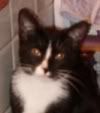Friday, April 20, 2012
Proper Use of "Me" and "I"
Technically, "I" is a nominative pronoun used as a subject of a sentence, while "me" is an objective pronoun, used as an object. The problem usually arises when connecting objects in a sentence. "I" is not an objective case word, but it is used simply because to most people it just sounds better.
Using "I" works for the nominative case when you and the other person are subjects of a sentence; however, if you and the other person are objects of the sentence, using "I" is not correct.
For example, "Mary and I are going to the conference" works. "You" and "Mary" are subjects of the sentence. Remove "Mary" and you have, "I (am) going to the conference."
Being objects in a sentence changes correct structure. Simply leave out the second object(s), or person(s). For example:
You may be tempted to write or say, "Would you like to join Mary and I at the conference?" By removing the second object (Mary) you have, "Would you like to join I at the conference?" Now try, "Would you like to join me at the conference?" It's easy to see that the proper sentence should be, "Would you like to join Mary and me at the conference?"
It really is just as simple as removing that second object. Let's try it again:
"Please explain proper word choice to Christine and I."
"Please explain proper word choice to Christine and me."
Remove the second object (Christine) and you have: "Please explain proper word choice to I," or, "Please explain proper word choice to me." See how easy it is to recognize the proper sentence?
"Please explain proper word choice to Christine and me."
Of course there are some instances where you can avoid your own internal dilemma by simply using the first-person plural and stating, "Would you care to join us at the conference?' or, "Please explain proper word choice to us."
Wednesday, November 10, 2010
Vocabulary
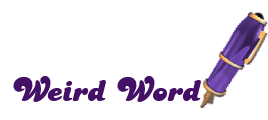

Increase your vocabulary with not-very-common and/or not-frequently-used words.
Today's Weird Word is: advertent, and its pronounciation is: \ad-'vr-tnt\.
Advertent is a adjective meaning: giving attention – heedful.
Marcia listened to everything we said with an advertent expression on her face, then proceeded to tell us, point by point, exactly why she disagreed with us.

Wednesday, September 8, 2010
Aloud vs. Out Loud
If you're being especially careful, you may want to stick with "aloud" in formal writing; but "out loud" is standard and even preferred in some sayings such as "laugh out loud."
If "out loud" hadn't become a rival of "aloud," the text messaging abbreviation could have been one character shorter: "LA" instead of "LOL" but I imagine "LA" wouldn't have caught on. Los Angeles and Louisiana would not have been amused.
Source: Grammar Girl

Thursday, November 19, 2009
Thoroughness Challenge

Note: Names and places will NOT be misspelled, nor will there by any changes to punctuation. In addition, if there is a word that may have more than one accepted form or there is more than one accepted spelling, those also will not be changed. That would not be fair...the purpose of the Challenge is thoroughness, not technicalities.
This week your Challenge paragraphs continue with the history of blogs and blogging as they evolve and begin to immerge as the blogs we're familiar with today. This week you're looking for 11 errors. Good Luck!

Since 2002 blogs have gained notoriaty and credability for there part in braking, shaping and spinning news stories. It has become a way of throwing important infomation into the public limelight. It now, for all intents and purposes, drives mainstream media by forcing them to follow there lead. Blogging has become a priceless tool for quality communication and a way for intelligent people to provide intelligent and valuable insight, opinions and information.
In 1999 new software services like Blogger and LiveJournal were launched, making blogs much simpler to create.
Today, more than one blog is created every second and there are currently over 100,000 million blogs worldwide.

Be sure to check back tomorrow to see how thorough you are!
Tuesday, November 17, 2009
One Word vs. Two Words

Several words in our language can be spelled as one word or as two, depending on its meaning. Below is a list of a few such words, with sample sentences on how they are used.
Almost - all most
The plane was almost (nearly) three hours late.
We are all most pleased (all very much pleased) with the new schedule.
Already - all ready
The order had already (previously) been shipped.
The order is all ready (all prepared) to be shipped.
Altogether - all together
He is altogether (entirely) too lazy to be a success.
The papers are all together (all in a group) on your desk.
Always - all ways
She has always (at all times) done good work.
We have tried in all ways (by all methods) to keep our employees satisfied.
Anytime - any time
Come see us anytime you are in town, (one word meaning "whenever").
Did you have dealings with him at any time in the past? (Two words after a preposition such as at.)
Anyway - any way
Anyway (in any case), we can't spare him now.
If we can help in any way (by any method), please let us know.
Awhile - a while
One word as an adverb; two words as a noun.
You may have to wait awhile. (Adverb.)
You may have to wait for a while. (Noun; object of for.)
Everyday - every day
You'll soon master the everyday (ordinary or daily) routine of the job.
He has called every day (each day) this week.
Into - in to
He walked into the outer office. (Into implies entry.)
He came in to see me. (In is part of the verb phrase came in; to is part of the infinitive to see.)
Indifferent - in different
She was indifferent (not caring one way or the other) to the offer.
He like our idea, but he wanted it expressed in different (in other) words.
Maybe - may be
Maybe is an adverb; may be is a verb.
If we don't receive a letter from them today, maybe (an adverb meaning perhaps) we should call.
He may be (a verb) out of town next week.
Onto - on to
He lost control of the car and drove onto the sidewalk. (Onto implies movement toward and then over.)
Let's go on to the next problem. (On is an adverb in the verb phrase go on; to is a preposition.)
Someday - some day
Please set up a meeting with them someday next week.
Please set up a meeting with them for some day next week. (Two words when used as the object of a preposition such as for.)
Sometime - some time
The order will be shipped sometime (at some unspecified time) next week.
It took me some time (a period of time) to complete the job.
Whoever - who ever
Whoever (anyone who) is elected secretary should write that letter at once.
Who ever made such a statement? (Ever is an adverb.)
At times you'll find two words spelled as one, and the resulting one word is not a word at all, (a good example is alot). Our language has many such situations, rules, and exceptions to rules. This is why many people feel intimidated and frustrated by grammar.
Source: The Gregg Reference Manual
Friday, November 6, 2009
Spelling Challenge

It's Fun Friday's Spelling Challenge! And, at the very end of this post are the words that were misspelled in yesterday's Thorough Thursday challenge.
Do you have your sticky note and pen ready? Great! Let's get started! Write down the correct spelling for this week's words. As usual the answers are listed below.

1. athiest
2. bellweather
3. concensus
4. dumbell
5. exhilerate
6. hierachy
7. innoculate
8. liason
9. occurrance
10. pronounciation
BONUS WORD
perogative
As you know, If you spell all 10 words correctly
you get a sparkling GOLD star! (Isn't it pretty?)

If you spell the bonus word correctly
you get the prized, very special, much coveted and very beautiful
Crystal Clear Proofing PURPLE star!

For spelling all the words, including the bonus word correctly
you get a GOLD AND a PURPLE star!
(And you ROCK!)
ANSWERS:
1. atheist
2. bellwether
3. consensus
4. dumbbell
5. exhilarate
6. hierarchy
7. inoculate
8. liaison
9. occurrence
10. pronunciation
BONUS WORD:
prerogative
So? How'd you do this week? How many of those stunning stars do you get to add to your collection? To those of you who earned stars...

Here is yesterday's Thorough Thursday post in its entirety, with the errors corrected and highlighted in red.
Early History
The practice of making extra copies of manuscripts goes back to ancient times; in Rome there were booksellers—Horace mentions the Sosii, who were apparently brothers—and the copying of books by trained slaves reached considerable proportions. With the introduction of printing into Europe in the middle of the 15th century, book publishing sprang into lively existence. The author, the printer, and the publisher of a work were sometimes all the same person, as in the case of members of the Estienne family in France in the 16th cent. The differentiation of printer, publisher, and bookseller appeared early, however, as patrons of literature had books printed for distribution and booksellers had their printing done by others to meet the growing demand.
The Emergence of Publishing Houses
The first important publishing house (1583–1791) was that of the Elzevir family in Holland. The Elzevirs were businessmen rather than scholars, and the business of bookselling grew as literacy increased. Concurrently, printing, publishing, and bookselling spread learning across the West. Religious controversy bred polemics, and arguments printed in broadsides, pamphlets, and books were handed out zealously and bought eagerly by partisans. An interest in knowing the future also increased the amount of literature issued by bookseller-publishers, and almanacs and the like were issued for the wider public.

And wishing you all a very

Tuesday, October 20, 2009
Awhile and A While

A while is a noun phrase in which "a" is an article, and "while" functions as a noun meaning "a short period of time."
Awhile is an adverb meaning "for a while."
The word awhile has "for" built into its meaning.
Basically, the meaning is the same, it's the structure that differs.
A mnemonic to assist in determining which to use, is whether "for a while" could be used in the sentence, without changing its meaning, where you were intending to use awhile.
********************************************************************************************************************
Examples:
- "I'll speak with you awhile" is correct because you could also say, "I'll speak with you for a while."
- "I'll speak with you for awhile" is not correct because you're actually using the word "for" twice.
(awhile = for a while: "I'll speak with you for for a while.")
- "I'll prepare my blog in awhile" is not correct as you would not say "I'll prepare my blog in for a while."
- "Writing the blog may take awhile" is not correct because, "Writing the blog may take for a while" is not idiomatic English.
(awhile = for a while: "Writing the blog may take for for a while.")
- "I have relatives staying with me awhile" is correct, as you could also say "I have relatives staying with me for a while."
- "I have relatives staying with me for awhile" is not correct, as in actuality that would be saying, "I have relatives staying with me for for a while."
********************************************************************************************************************
The two-word noun phrase a while is more often the correct choice that is the one-word adverb awhile.
Most grammatical errors involve using awhile where a while would be the appropriate choice.
Again, remember the mnemonic of placing the word "for" before either choice. It's a nearly foolproof way of determining which is appropriate to use.
Sources: Gregg Reference Manual, Grammarmudge, AP Stylebook, CMS
Thursday, October 15, 2009
Spelling Challenge

What happens to these weeks that I see out of the corner of my eye, literally flying by? Where do they go? Well, I managed to grab the last day as it was preparing to whiz by me, smoothed it out and placed a piece of it on this page. Because hard as it is to believe, it's once again time to test your skills with "Fun Friday's Spelling Challenge!"
And...here are today's words, with the answers below.
Also, same as that last week that flew on by, at the very end of this post are the words that were misspelled in yesterday's Thorough Thursday challenge.

NO PEEKING!
1. abundence, abundense, abundance
2. amateur, amatuer, ameteur
3. boundries, boundaries, bounderies
4. changeable, changable, changeble
5. commission, comission, commision
6. disasterous, disasterus, disastrous
7. embarass, embarrass, embarress
8. hemmorrage, hemorrage, hemorrhage
9. governor, govenor, govenor
10. millenium, milennium, millennium
BONUS WORD
mischevous, mischievous, mischieveous
you get a GOLD star!

And, if you spelled the bonus word correctly
you get the prized, very special, and much coveted
Crystal Clear Proofing PURPLE star!

For spelling all the words, including the bonus word correctly
you get a GOLD and a PURPLE star!
(Hooray!)
ANSWERS:
1. abundance
2. amateur
3. boundaries
4. changeable
5. commission
6. disastrous
7. embarrass
8. hemorrhage
9. governor
10. millennium
BONUS WORD:
mischievous
to those of you who earned stars!

Now, here's yesterday's Thorough Thursday post in its entirety, with the errors highlighted in red. (Oh my goodness, the dreaded red marks!) However in this post, and in the future, rather than just highlighting the incorrect word, I'll be highlighting it and replacing it with the correct word and/or spelling (as should have been done last week)!
_______________________________________________________
It's hard to believe that summer is behind us. The absence of warm weather affects many people who suffer from rheumatoid arthritis and other joint ailments, yet can be a relief to those who suffer from allergies. There are fewer pollutants in the air, but the fluctuating barometric pressure results in aches and pains definitely being more prevalent. Suffering from osteoarthritis myself, I notice a tremendous change in the severity of joint stiffness.
It seems as though it's comparatively much easier to ease into summer than it is getting used to the colder weather. Our bodies acclimate to the change in climate much better; however, if you happen to suffer from them, nasal allergies do not. The pollination of so much flora, even the growing of the grass in the spring can wreck havoc on our bodies, causing post-nasal drip and itchy, watery eyes. Many find relief from allergies with over-the-counter medications, while some require prescription medication.
And then there's the whole process of changing the contents of your closet. The colder temperatures mean bringing out the heavier, warmer clothing. It's one of the things I miss about having lived in California where "closet rotation" isn't really necessary.
_______________________________________________________
So, how'd you do? All the errors were spelling, with the exception of effects being used rather that affects, and wrack rather then wreck. This proves a good reminder to everyone that while spell check is a wonderful tool, it isn't going to help you when you use an incorrect word!
As usual, I hope that you all have a very...

Thoroughness Challenge

Thoroughly Thursday is a weekly post where I type a couple of paragraphs that contain spelling and/or grammatical errors, and your job is to find them. The same post is repeated at the end of Fun Friday's Spelling Challenge, with the errors corrected and highlighted in red.
This is on the honor system! No spending all day, printing it out, looking up words...you have to complete the challenge here.
Also, please keep the errors you find to yourself, rather than list them here...we don't want to "help" anyone inadvertently!
Here is this week's Thoroughly Thursday challenge,
which contains 24 errors. Good Luck!
*****************************************************************************************
It's hard to beleive that summer is behind us. The absense of warm weather effects many people who suffer from rhuematoid arthritis and other joint ailments, yet can be a releif to those who suffer from allergies. There are fewer pollutents in the air, but the fluctuating barometeric pressure results in aches and pains definately being more prevelant. Suffering from osteoartheritis myself, I notice a tremendus change in the severety of joint stiffness.
It seems as though it's comparitively much easier to ease into summer than it is getting used to the colder weather. Our bodies acclamate to the change in climate much better; however, if you happen to suffer from them, nasel allergies do not. The pollenation of so much flora, even the growing of the grass in the spring can wrack havock on our bodies, causing post-nasel drip and itchy, watery eyes. Many find releif from allergies with over-the-counter medications, while some require perscription medication.
And then there's the whole prosess of changing the contents of your closet. The colder tempratures mean bringing out the heavier, warmer clothing. It's one of the things I miss about having lived in California where "closet rotation" isn't really neccesary.
*****************************************************************************************

Wednesday, October 14, 2009
Wednesday's Word

Welcome to this week's edition of Wednesday's Word, where you'll learn an obsure, not-very-common and/or not-frequently used word.
Today's Wednesday's Word is: OBDORMITION.
Obdormition is a noun and it's description is: numbness or 'going to sleep' of a limb, etc.
We've all been the victims of obdormition! So next time your leg goes numb after all those hours at the computer, try using today's new word and let someone know that obdormition is SUCH an inconvenience! (It can even be dangerous! I've actually landed on the floor as a result of not knowing I had obdormition in one of my legs, or feet...)
Okay, have fun with that, and see you back next Wednesday for another new, weird word! LOL!!
Note: The source for many of the words I'll be featuring can be found at Luciferous Logolepsy. They are so obscure, I was actually unable to find some of them at a couple of common online dictionary references, such as The Free Dictionary.com.
Friday, October 9, 2009
Spelling Challenge

Happy End of the Week! It's time once again for "Fun Friday's Spelling Challenge!"
And...here are today's words, with the answers below.
Also at the very end of this post are the words that were misspelled in yesterday's Thorough Thursday challenge.

NO PEEKING!
1. acummulate, accumulate, acumulate
2. cartilage, cartiledge, cartiladge
3. diarama, dioroma, diorama
4. flaberghast, flabberghast, flabbergast
5. hankerchief, handerchief, handerchef
6. irascible, irrasible, irrascible
7. leutenent, lieutenant, lieutenent
8. misogany, misogyny, misogyni
9. rememberance, remembrence, remembrance
10. plentitude, plenitude, plenatude
BONUS WORD
sacrilegious, sacreligious, sacreligeous
you get a GOLD star!

And, if you spelled the bonus word correctly
you get the prized, very special, and much coveted
Crystal Clear Proofing PURPLE star!

For spelling all the words, including the bonus word correctly
you get a GOLD and a PURPLE star!
(Hooray!)
ANSWERS:
1. accumulate
2. cartilage
3. diorama
4. flabbergast
5. handkerchief
6. irascible
7. lieutenant
8. misogyny
9. remembrance
10. plenitude
BONUS WORD:
sacrilegious
to those of you who earned stars!
Now, here's yesterday's Thorough Thursday post in its entirety, with the errors highlighted in red. (Oh my goodness, the dreaded red marks!)
_______________________________________________________
Thorough Thursday is going to consist of a few short sentences that will include mispellings and possibly minor grammer issues to test your attentivness to detail, and to see how thorough you are.
In the first of this feature there are 14 words spelled incorrectley. It can be challanging to acomplish this task with readers posessing such exellent grammer skills. Each week, the mispelled words will be posted at the end of Fun Friday's Spelling Challange.
It will be fun to see whom recieves the best results and catches the most errors! Good luck, and check back tommorrow to see how you did!
_______________________________________________________
So, how'd you do? Several of you left comments of having found 13 errors. The 14th was the use of whom, when who is correct. That was the only grammar error. I belief Elspeth may have gotten that one!
You all did very well! Between yesterday's and today's exercises, you all have worked so hard, so go and enjoy the rest of your day, and...

Tuesday, October 6, 2009
Who and Whom

Who is used as the subject of a sentence.
Whom is used as an object in a sentence.
_________________________
Who was at the conference?
Whom did you see at the conference?
In the first sentence above, who is the subject.
In the second sentence, you is the subject and whom is the direct object (of who was at the conference).
_________________________
Who is the book dedicated to? Who is the subject.
To whom is the book dedicated? Whom is the object (of the book).
_________________________
A practically fail-proof exercise to help determine which is correct to use is to replace the word in question with he/she or him/her.
He/she is the equivalent of who (subjective) and him/her is the equivalent of whom (objective). For example:
Who/Whom should I ask to review the book?
I should ask he/she...
I should ask him/her...
I should ask him/her to review the book is right. Therefore, Whom should I ask to review the book? is the correct choice.
________________________
Whom is also used as the object of prepositions - words such as to, for, about, over, of, after, from or before. If one of these prepositions is present, it will precede the word whom.
Examples
The letter should begin with, "To Whom It May Concern."
For Whom the Bell Tolls.
About whom should I write to book?
The heated discussion was over whom?
You indicated the book was a biography of whom?
After whom do I give my presentation?
From whom do you expect to receive a good review?
Before whom do I stand in line?
________________________
SYNOPSIS
Who is used as the subject of a sentence.
Whom is used as an object in a sentence.
Substituting he/him or she/her is an excellent exercise in determining which word to use.
Whom is used when followed by prepositions such as to, for, about, over, of, after, from or before.
How the sentence is structured can change which word you use.
Whom in many situations is more formal than who. You can say:
"Who are you talking to?" or
"To whom are you talking?" (Notice the word to before whom.)
Friday, October 2, 2009
Spelling Challenge

Not only is it already October (what happened to SUMMER?), it's also already time to once again test your spelling skills! Along with the change of season, as you no doubt noticed in the header, I've changed the name of the weekly "Misspelled Words" feature to "FUN FRIDAY'S SPELLING CHALLENGE!"
And...here are today's words. The answers are below, and of course you know...

NO PEEKING!
1. annoint, annoynt, anoint
2. camouflage, cammoflage, camoflauge
3. deterrance, deterrence, deterence
4. explaination, explanaition, explanation
5. hypocresy, hypocrisy, hypocracy
6. nauseous, nauseus, naucious
7. putrify, putrefy, putrefie
8. subpoena, subpena, supoena
9. tariff, tarriff, tarrif
10. eukalale, ukulele, ukalele
BONUS WORD
onometopia, onomatopoeia, onomatopoea
you get a GOLD STAR!

Crystal Clear Proofing PURPLE STAR!

then you get a GOLD STAR and a PURPLE STAR!
Now THAT'S not only exciting, but one heck of an incentive, right?
(Just agree with me, it's Friday...)
ANSWERS:
1 anoint
2. camouflage
3 deterrence
4. explanation
5. hypocrisy
6. nauseous
7. putrefy
8. subpoena
9. tariff
10.ukulele
BONUS WORD:
onomatopoeia
(For the definition of today's bonus word just click FreeDictionary.com)
NEW FEATURES COMING TO CRYSTAL CLEAR PROOFING: In addition to differences between words, which word to use when...(otherwise known as the "techie posts"), and Fun Friday's Spelling Challenge, I'm tossing around some ideas for other posts; for example, one may have to do with words that are uncommon and you don't hear or use often - such as today's bonus word.
Another idea is to write a one or two paragraph story, complete with a few errors, and your challenge would be to find them!
I'll be working out the details and considering different options over the next few days. If any of you have any ideas or things you'd like to see here, please - by all means mention them! In the meantime...
It not only lights up your face, but shines upon those you share it with!
It's an easy way to spread some HAPPY - and it just makes you feel GOOD!

Sunday, August 30, 2009
Lay and Lie
The past tense of one form is the present tense of another, i.e., the past tense of lie is lay.
Lay is also a present tense verb.
One of them, lie, can also refer to an untruth.
Lay means to put down, or to place.
It is a transitive verb and requires an object.
Lie means to recline, or occupy a location.
It is an intransitive verb and does not have an object.
Tip from CCP: A good way to remember which has an object and which doesn't is LIE. When using it to reference an untruth it has a negative connotation, so think of the fact that it does NOT have an object.
Therefore, you LAY a book on a table, and you LIE down.
(You don't lie the book on the table - you have an object. And, in the present tense, you don't lay down - you don't have an object).
Confused yet?
Here are some examples on how to conjugate these two verbs:
LAY
Remember lay is transitive and must have a direct object.
The past tense of lay is laid.
- Present tense: I lay the books on the table.
- Past tense: I laid the books on the table.
- Past participle: I had laid the books on the table.
LIE
Remember lie is intransitive and cannot have a direct object.
The past tense of lie is lay.
- Present tense: I lie down to rest.
- Past tense: Yesterday, I lay down to rest.
- Past participle: One day last week I had lain down to rest.
*****************************************************************
Substituting lay with place:
Since lay means to put down or to place, a good test in deciding whether to use lay or lie in a sentence is to *substitute the word place, placed or placing (as appropriate) for the word in question. If the substitute fits, the corresponding form of lay is correct. If it doesn't, use the appropriate form of lie.
- I will (lie or lay?) down now. (You would not say "I will place down now." Therefore, "I will lie down now" is correct.)
- I (laid or lay?) the pad on the desk. ("I placed the pad on the desk" works. Therefore, "I laid the pad" is correct.)
- I (laid or lay?) awake many nights. ("I placed awake" doesn't work. "I lay awake" is correct.)
- These files have (laid or lain?) untouched for some time. ("These files have placed untouched" doesn't work. Correct: "These files have lain untouched.")
- He has been (laying or lying?) down on the job. ("He has been placing down on the job" doesn't work. Correct: "He has been lying down.")*
*Source: The Gregg Reference Manual, Sixth Edition*
***************************************************************
Even grammar "experts" have a difficult time with lay and lie, and use a cheat sheet such as the one below:
****************************************************************
PRESENT........PAST..........PAST
TENSE...........TENSE........PARTICIPLE
Lay*................Laid............Laid______to place or put down
Lie..................Lay..............Lain______to recline
*Remember - requires an object.
****************************************************************
(Special Note: "Layed" is not a word - it is "LAID.")
Today you lay the book on the table,
yesterday you laid the book on the table,
and in the past you have laid the book on the table.
You need to lie down today,
yesterday you lay down
and in the past you have lain down.
If you had printed this out, you could now lay the pages on the table and go lie down and relax after reading all this information about lay and lie.
If all else fails, at least the chart above will help you remember. Really! I wouldn't lie!
Monday, August 24, 2009
Wait and Await
Await always takes an object: you await your destiny, etc.
Wait does not: you wait for or on something or someone.
WAIT
Wait is intransitive, (a verb or verb construction that does not require or cannot take a direct object), and a preposition must be used with it. That preposition is usually for: "I've been waiting for 2 hours."
The verb wait can come in different structures. You can just use wait on its own: "I've been waiting for the release of that book."
Wait is often used with another verb: "I waited in line for the author to make an appearance."
Very often a reference to time is mentioned when using a form of wait: "I waited for at least an hour."
Finally, speakers often mention what or who they have been waiting for: "I have been waiting for two hours for the bookstore to open."
AWAIT
Await is transitive, (a verb requiring a direct object): "I await the author's appearance."
Await, being more formal, is more commonly used in written form, as opposed to speech, when we tend to use wait for.
Remember, await isn't followed by for - wait is.
---------------------
When reading the following sentences, it's easy to "hear" that they are not grammatically correct:
I wait the release of the book.
I await for the release of the book.
Using a preposition with the correct verb, it's equally as easy to "hear" proper syntax:
I wait for the release of the book.
I await the release of the book.
----------------------
In most cases, the primary difference between wait and await is the level of formality.
Await is simply a more formal way of saying to wait for.
I await the release of the book.
I am waiting for the release of the book.
Tuesday, August 11, 2009
Joint and Separate Possession
Here are sentences giving examples of both:
Joint Possession
"Sally and Amy's blogs."
(The blogs of Sally and Amy. Sally and Amy wrote more than one blog together).
Separate Possession
"Sally's and Amy's blogs."
(The blogs of Sally and the blogs of Amy. Sally and Amy each wrote more than one blog).
General consensus is that in joint possession, only the last possessor has inflection. So, in the first example, since Sally and Amy both wrote the blogs, the word that shows possession is the last - in this case, Amy.
If nouns possess something jointly (the blogs were written by both Sally and Amy), add the apostrophe and "s" showing possession to the last noun, (they are Sally and Amy's blogs).
If nouns possess something separately (the blogs Sally wrote, and the blogs Amy wrote), add the apostrophe and "s" to both nouns, (Sally's and Amy's blogs).
The "secret" is just to ask yourself, "Whose blogs are they?" If the answer is that they are the blogs of both of them (they each wrote the blogs), you have joint possession. If the blogs are Sally's and the other blogs are Amy's - separate possession.
Thursday, July 9, 2009
They're, Their and There
The first I'll address, and probably the easiest to remember, is they're. They're is a contraction of the words they and are. A contraction is the combination of two words, e.g., wasn't - (was and not), couldn't - (could and not)...you get the idea. So in the context of what you're writing, if the two words used separately make sense, then you're (you are) using the correct form.
Their is a possessive adjective. "Their choice of words is correct." Perhaps the i in their could help you; (i - mine) being possessive. (A special note of interest about their - this form is often misspelled, possibly because of the general rule, "i before e except following c;" it's one of those words that doesn't comply with the "rule") - which is WEIRD.
There on the other hand, is usually used when referring to a place, (They live over there), or as a pronoun to introduce a sentence (There are three versions of the word). Here you have a word where a letter - "r" is placed between two identical letters, - "e". If you're unsure, say to yourself, "I'm placing the r between the e's," thus you are referring to a place. Another trick that might help you remember is that here is in the word there, and here is a place. As for abstract uses of the word, is it a pronoun you're beginning a sentence with? Your safest bet is the process of elimination. If they're and their do not fit, chances are you want to use there.
In the following sentence can you see the use of the three forms being used correctly?
"They're hoping that their books will sell there."
They are hoping that their (remember i - possessive) books will sell there (you placed the r between two e's; and here is part of the word) - a place.
And remember - while spell check is a wonderful tool, it's not going to catch an incorrect word choice! All three forms of this word will pass spell check (if they're spelled correctly!) But it may not be the correct form of the word for the context of what you're writing! Enabling grammar check will help, but mastering the differences of these words on your own is empowering! C'mon!! You can do it! THERE is nothing to it!
Now, did you catch that? They're and their would not be correct - try it: They're (they are) is nothing to it; Their (possessive - I, mine) is nothing to it. Neither is right, so by process of elimination, and the fact that it's a pronoun used to introduce a sentence, the proper choice is THERE.
~AS EDITING SCHEDULE PERMITS~
TO ENSURE RECEIVING NEW POSTS,
CONSIDER SUBSCRIBING!
~THANK YOU~
FOR YOUR CONTINUED SUPPORT
OF CCP AND THIS BLOG!
~ Crystal ~
♥


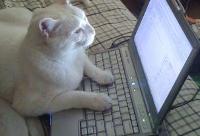




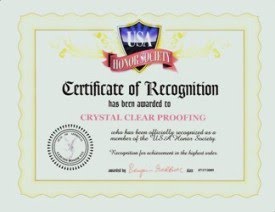
Blogged
****************************************
****************************************


Reader Comments
You make lessons lots of fun. A wonderful gift!
Bravo! Your blog is inventive, informative and FUN! You have a real knack for presenting what could be HO-HUM in a fascinating way!
You truly do have one of my favorite blogs. Those spelling posts are working wonders for me. Thanks again!
Your blog is tremendously helpful...thank you very much for the great blogging you do! You provide a wonderful service for us writers.
Love your blog posts - you have such a succinct and clear way of clearing up the most difficult and subtle nuances of good writing and editing.
You have a special talent for clarifying literary distinctions.
You realy do need to write a grammar book! No one does these posts better and makes them as easy to understand & remember as you do!
Great and informative post. It's so nice and succinct - grammar seems soooo much easier now.
I am so delighted to have found you! I look forward to following your blog.
As usual, your in-depth posts bring clear distinction to often gray and fuzzy topics.
you really do do this extremely well.
Great tips. You always have such useful information. Thanks.
I think your blog is great! Very helpful
All good information...I love your tutorials!
Some excellent advice and as usual, very clearly explained. Thanks for the help.
Love your blog...Thanks for this, you're keeping English intact.
Thanks. I love your site for the great information.
Once again, a clear (crystal), concise, and easy to understand tutorial, my dear. And once again, I got it bookmarked. I'm putting together an editing/proofreading e-book for my personal use with the compilation of all these wonderful posts - thanks!
Your post are helping to alleviate the grammar phobia in me. Thanks, Crystal.
Crystal Clear Proofing posts the greatest writing/editing tutorials. As an editor myself, I go there often to learn subtle nuances in the craft of good writing, as she has this marvelous ability to make those fuzzy, sometimes hard to determine, gray areas of correct writing, well…Crystal Clear!
I do love your posts, they have such great information.
You always break it down into realistic terms, Crystal!
You have such interesting posts. Thanks.
Crystal, I think I'm going to print out all your posts and staple them together for my own style book. Thanks!
Thanks for the great posts!
I have learned much from your blog.
Just excellent. I need to remember all these things. All the time. Thanks.
Thanks for these tips; they're very useful! Readers get drawn into stories in part because of good, clean writing, and these are valuable ideas for creating that kind of writing.
I.E AND E.G.
Thank you! I've never know what those meant or how to properly use them!
JOINT AND SEPARATE POSSESSION
Thank you so much! I had a hard time finding what joint and seperate possession means! Once again, thank you!
WAIT AND AWAIT
Oh, I love this site! Do you have a past post about lay, lie and all that good stuff?
This is a very clear and succinct explanation of the distinction between the two words."
LAY AND LIE
OMG! This is GREAT!!! I might actually understand it now! Thanks so much, Crystal. This is an awesome site!
You have a great way of explaining words. Your blog is a wonderful source for writers. I'll have to search your post to see if you have "affect" "effect", I know I use those improperly often.
AFFECT AND EFFECT
Thank you for this great post! I have printed it to keep it handy. Hopefully, it will positively affect my future writing.
Thanks for this post Crystal. I was going to actually email you and request that you explain the difference between these two, because these are usually a problem for me. Thanks again!
Another classic, Crystal Clear explanation...this tutorial contains some subtle nuances well worth being reminded of. Thanks!
THAT AND WHICH
Another excellent grammar lesson!
You are really rockin' this grammar instruction! I am currently working on a short story for class, which must be submitted this week, and this was very helpful. Did I get it right? (Note from CCP: she did get it right!)
WHO AND WHOM
Perfect! Got it...I keep all these tutorials in a bookmarked file now.
Great tutorial!! I'm saving this one.
Another great tutorial.
QUOTATION MARKS
Great post. Good tips about punctuation.
AWHILE AND A WHILE
Another fine tutorial. Got it added to my Clear as a Crystal file.
What a wonderful tip!
Oh!!! Those examples are perfect and it really makes sense now. Thanks!
APOSTROPHE USE WITH POSSESSIVE NOUNS
Excellent and very thorough. Got this one copied and stored along with ALL your tutorials in my Crystal Clear Writing folder. :)
Another excellent post. I always have trouble with these.
Now that my eyes have re-focused after glazing over, I can say that this is why writers need to hire editors--So they don't have to think too much about grammar. I can't keep all the darn rules straight in my head. Thanks for doing what you do. I am cutting and pasting this into a new word file for grammar tips.
Good one! I'm tweeting this.
Clear and concise. Thanks.
That possessive S has at some points been the bane of my existence...so thanks for this.
Great article! Thanks for the examples too.
Confusing topic, excellent post. Many people really do not know at all how to handle these pesky little things, so thanks for 'splaining it so nicely.
Excellent post! I enjoyed this a lot...Great blog. :)
LEVELS OF EDITING
Crystal, great explanation and post today - I copied it as a word doc and stored it in my "Crystal Clear" file.
You've written a wonderful post that throws light on a rather mysterious (to me) subject.
ONE WORD VS. TWO WORDS
Another great post.
Thanks for sharing this list and clarifying these points.
WRITING DATES AND TIMES
Writing dates and times is always confusing for me, so I really appreciate this, Crystal! Thanks.
Great tips. This is very helpful. Thanks.
Awesome tips. I make some of those mistakes.
I will copy and paste into a writing tips folder I've started to gather all these handy dandy things in one place. Thank you.
Great post!
What a very useful post! I'm going to bookmark it for easy reference. Thanks Crystal!
Good stuff Crystal!
Very good and clear lesson here. Copied and pasted it into a Word Doc and saved it in my "Crystal Clear" file!
You have some good reference article(s) here, Crystal. :-)
PREPOSITIONS
Excellent tutorial, got it saved as usual.
Thanks for this! Bookmarking it for easy reference.
SEMICOLONS
Another great and much needed post for people like me. This is why you are the Grammar Goddess!
Oh I agree. You are the Grammar Goddess. I have the worst time with commas and semicolons. Thanks for the helpful post. I'll have to print this out and keep it close.
I bow to you, Grammar Goddess. Another one to save in my growing list from your posts.
Oh great Grammar Goddess, how I worship you! Thanks so much for this post.
You make it look so easy!
Good one!
Oh my goodness you have made it so clear! I'm sure it will be this clear when I am writing later...Thank you!
COLONS
As always, awesome advice and clarification.
Thanks, Crystal. Helpful, as always.
Great advice, Crystal! I'm tweeting.
Helpful as always. Thanks.
DASHES
You should really turn your blog into a book. Now THAT is a grammar book I would buy!
Thank you so much for this post. The explanations and examples made it "crystal clear" for me. :-)
I like your distinction between the use of dash and colon. It makes sense to me.
Most helpful. I just had to change a host of en dashes to em dashes in my ms.
HYPHENS
Thank you very much for this post!
Great tips, Crystal! Thanks so much.
Such great advice! Thanks for the valuable lesson!!
Great post. Thanks.
Wow! Thank you for taking the time to clear up some of the confusion about hyphens. As always, a very helpful post.
These are wonderful guidelines, Crystal, thank you!
Another fine tutorial.
I'm pretty sure I don't use hyphens correctly. It was good to read through this advice and think about how I do use them. Thanks.
Good post, great blog!
OVER THE TOP AWARD
Congratulations, you and your blog are "Over the Top."
Your blog is sure Over the Top! One of my favorites!
FIFTEEN PUNCTUATION FACTS YOU NEED TO KNOW
Great summary.
Love this post!! I needed this one. I think I might have to frame it and stick it beside my desk as a reminder when I'm writing! You rock!!
Great tips! I'm tweeting.
Crystal this is excellent. I've got it stored in my Crystal Clear file folder.
Yeah, I've created a Crystal folder as well and cut and paste all your gems.
Thanks for these tips, Crystal! Very useful! I think I should post them above my desk!
Another very useful post, Crystal.
Great tips as always :)
You always make this painless. Thanks Crystal.
EFFECTIVE WRITING
I think this is one of my favorite rules post yet. So helpful!! May have to post this one on my desk too, I know I'll get one of those flip book easels so I can have all your post handy and in my face to remind me. I need that, you are an editor extraodinaire!!!
Thanks for making grammar crystal clear once again, Crystal.
Another fine lesson, Crystal on some of the finer points of good prose. Got this one saved, too.
I love the examples - they make it so much easier to remember these rules!
And another of your posts goes into the 'keep' file. Bless you, my dear, for making it all so Crystal Clear!
Oh, man, I wish I could send this to all the writers I worked with and trained over the years at TV stations! You rock, Crystal!
CLAUSES
Thanks! I love these tutorials.
Very helpful and easy to understand as always!
CHALLENGES
Great idea for a proofreader post!
Your posts are fun, creative, and challenge our brains.
What a fun exercise!
This is a great exercise, Crystal! I really appreciate your blog.
I just love your challenges - they make me realize how much I still have to learn!
This is great, I like the new Challenge! Great blog too, glad to have found you on blogger!
I love these!
Thanks Crystal. :) This is fun.
This is a great exercise for concentration; thanks!
Another excellent week of challenges...Keep them coming!
These are so much fun, Crystal. Helps keep us sharp, too!
This is an interesting weekly challenge, Crystal; it shows me time and time again how easy it is for my brain to skip over mistakes.
I love the idea of doing this weekly. What a fun little challenge.
This is such fun to do...Thanks for providing a means for waking up my brain.
This is great...Thanks, Crystal! So fun!
I LOVE the spelling challenge!! I am a horrible speller and need all the help I can get. Great idea for a weekly post.
It's so easy, isn't it, to miss those little things that, in the end, make writing look polished or look "raw." This is a good exercise : ). I look forward to more.
Yippee for me. Got them this time. So fun, Crystal. Thanks.
As always, you're the Grammar Goddess. Thanks for keeping us on our toes.
Thanks, as always, for these little challenges. It's so important to communicate clearly when one writes, and readers do *not* want to be bothered by obvious spelling goofs.
Love the spelling challenges.
Wow, you really know how to get a brain working! Thanks again for another helpful post!
Thanks for this challenge. I appreciate the exercise. It's always good to keep in practice.
I just love your challenges - they make me realize how much I still have to learn!
Great test! Thanks, I love your posts!
***************************************************************************************** "Editors and proof readers are the unrecognized support structure of books. Without them, books would take authors twice as long to complete." Comment left by Leigh Russell (CRIME FICTION)
Search This Blog
Blog Archive
-
▼
2012
(2)
- ► January 2012 (1)
-
►
2011
(14)
- ► November 2011 (2)
- ► August 2011 (2)
- ► April 2011 (1)
- ► March 2011 (4)
- ► February 2011 (1)
- ► January 2011 (1)
-
►
2010
(48)
- ► December 2010 (3)
- ► November 2010 (4)
- ► October 2010 (4)
- ► September 2010 (4)
- ► August 2010 (4)
- ► April 2010 (1)
- ► March 2010 (5)
- ► February 2010 (8)
- ► January 2010 (8)
-
►
2009
(69)
- ► December 2009 (9)
- ► November 2009 (17)
- ► October 2009 (22)
- ► September 2009 (6)
- ► August 2009 (3)
****************************************
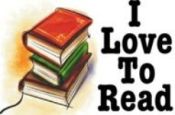
~ Great Sites ~
- 365 Cat Ladies and Friends
- Albert the Cat's Blog
- Aspire Higher Motivational Quotes
- BlogSlot
- Chrysalis and beyond
- Daily Inspiration
- Daily Upliftment
- Grammar Monkeys
- Grammarphobia
- Happy Beings
- Improve Life
- My Soul is a Fairy Tale
- ProBlogger
- Society for Promotion of Good Grammar
- Society of Socialpreneurs
- The Conscious Cat
- The Frugal, Smart and Tuned-In Editor
- The Pagan Spirit
- WOOF
****************************************

I created this award to commemorate
the fellowship of the Blogosphere! 9/19/9

I created this award to recognize
Blogger Purrfection! 1/27/10
****************************************









(2)


(2)


(2)



(2)



(2)






(3)


(2)


(2)


















